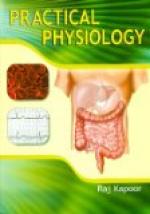Palate (Lat. palatum, the palate). The roof of the mouth, consisting of the hard and soft palate.
Palpitation (Lat. palpitatio, a frequent or throbbing motion). A violent and irregular beating of the heart.
Papilla. The small elevations found on the skin and mucous membranes.
Paralysis (Gr. paralyo, to loosen; also, to disable). Loss of function, especially of motion or feeling. Palsy.
Parasite. A plant or animal that grows or lives on another.
Pelvis. Literally, a basin. The bony cavity at the lower part of the trunk.
Pepsin (Gr. pepto, to digest). The active principle of the gastric juice.
Pericardium (Gr. peri, about, and kardia, heart). The sac enclosing the heart.
Periosteum (Gr. peri, around, osteon, a bone). A delicate fibrous membrane which invests the bones.
Peristaltic Movements (Gr. peri, round, and stello, to send). The slow, wave-like movements of the stomach and intestines.
Peritoneum (Gr. periteino, to stretch around). The investing membrane of the stomach, intestines, and other abdominal organs.
Perspiration (Lat. perspiro, to breathe through). The sweat.
Petrous (Gr. petra, a rock). The name of the hard portion of the temporal bone, in which are situated the drum of the ear and labyrinth.
Phalanges (Gr. phalagxi, a body of soldiers closely arranged in ranks and files). The bones of the fingers and toes.
Pharynx (Gr. pharmgxi, the throat). The cavity between the back of the mouth and the gullet.
Physiology (Gr. physis, nature, and logos, a discourse). The science of the functions of living, organized beings.
Pia Mater (Lat.). Literally, the tender mother; the innermost of the three coverings of the brain. It is thin and delicate; hence the name.
Pinna (Lat. a feather or wing). External cartilaginous flap of the ear.
Plasma (Gr. plasso, to mould). Anything formed or moulded. The liquid part of the blood.
Pleura (Gr. pleura, the side, also a rib). A membrane covering the lung, and lining the chest.
Pleurisy. An inflammation affecting the pleura. Pneumogastric (Gr. pneymon, the lungs, and gaster, the stomach). The chief nerve of respiration; also called the vagus, or wandering nerve.
Pneumonia. An inflammation affecting the air cells of the lungs.
Poison (Fr. poison). Any substance, which, when applied externally, or taken into the stomach or the blood, works such a change in the animal economy as to produce disease or death.
Pons Varolii. Bridge of Varolius. The white fibers which form a bridge connecting the different parts of the brain, first described by Varolius.
Popliteal (Lat. poples, poplitis, the ham, the back part of the knee). The space behind the knee joint is called the popliteal space.




